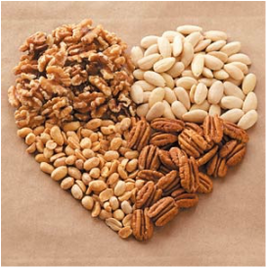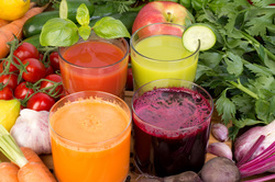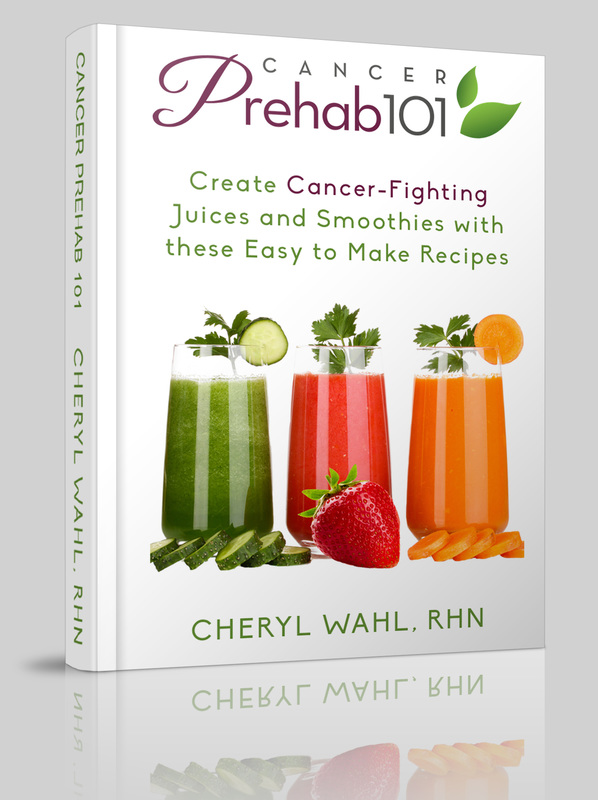 A busy schedule can also throw off the timing of your meals so keeping healthful, wholesome snacks like trail mix and all-natural granola bars in your car or purse can keep you from having a blood sugar freak out. And what happens when our blood sugars crash? We usually crave something sweet, simple carbs, like chocolate, donuts or cookies. This only creates the rollercoaster ride of blood sugar highs and lows. Here are some natural stress-busting foods: Hemp seeds. Also known as hemp hearts, hulled hemp seeds are great for sprinkling on cereal or salads and they're an excellent source of protein, omega-3 fatty acids and B vitamins that help your body make nerve-calming tryptophan. Coconut water. Available in convenient single-serve tetrapaks, this tropical drink is a natural source of electrolytes, vitamin C and medium-chain fatty acids that are used as immediate energy for your active body. Granola bars with no refined sugar. Between meals, when you're on the go, granola bars are easy to slip into your bag so you don't have to resort to vending machines or gas station fare. Choose a bar with no refined, white sugar in the ingredient list as that will only aggravate your overworked adrenal glands. A few of my favourite brands are Kashi and Kind. Or you can make your own with this recipe from 'Oh She Glows', my current go to recipe book. Trail mix. Pre-pack small handfuls of dried fruit, seeds and nuts to help keep blood sugar levels stable during a long day. Like granola bars, these little bags of raw energy will prevent resorting to non-nutritive processed food that may stress you out further. Do you have any healthy portable snacks? Share them with us in the comments below. In good health, Cheryl Wahl, RHN Certified Professional Cancer Coach
0 Comments
The Food Marketing Institute has recently reported that 71% of us are cooking at home more often these days. That means more people are sitting in rush hour traffic rummaging through their cupboards and fridge in their minds, trying to figure out what's for dinner. Naturally, home cooking has fewer calories and more nutritional value than restaurant meals but are you maximizing your savings or adding to your stress when you eat at home?
The average household wastes 14% of the food they buy due to poor planning and wastage. If you spend $250 a week on groceries (the average family of four), 14% is the equivalent of three gourmet lunches. By planning your meals you only shop for the fresh items you need for the week, thus reducing wastage and worry. Any extra portions can be labelled with the date and frozen right after you make them so they avoid becoming funky experiments in the back of the fridge. When you plan meals, make sure to include enough foods from each food group, with special attention to fresh vegetables and fruits for every meal as well as snacks. Always keep an eye out for sales on grain products like rice, pasta, couscous and oats so you can stock up and have them as staples for every meal. Frozen fish, frozen vegetables and even frozen fruit are also good to keep on hand for quick entrees, side dishes and smoothies when you haven't had a chance to buy fresh ingredients. Meat is definitely the most costly mealtime staple but re-thinking how you use it can be better for your wallet and your waistline. With books like In Defence of Food by Micheal Pollan, it's becoming increasingly popular to think of meat as a condiment for vegetables as opposed to the meal's focal point. Diversify your cooking skills and learn techniques to stretch your food dollar. For instance, braising or slow cooking cheaper cuts of meat is an easy way to save on meat. Or, better yet, swap out meat for lentils and other beans once or twice a week for even greater savings – and health benefits. Soups, casseroles and salads are all great ways to pepper in a little meat instead of serving it in one big chunk. The benefits of meal planning are numerous and getting started is surprisingly simple. All you need to do is jot down your meals before you go grocery shopping, know what you have on hand, and write out your shopping list so you buy only what you need. At the beginning of the year, when money and budgeting is on our minds, here a few tips that allow us to eat healthy while managing our food budget:
So, take a few moments at the beginning of your week and plan out your meals and snacks. You will save money by avoiding impulse buys and purchasing ready-made meals. Let me know what time and money saving tips you have. Post in the comments below. In good health, Cheryl Wahl, RHN Certified Professional Cancer Coach  Will this be you tomorrow? You wake up with a headache, upset stomach, your mouth is dry and you're feeling down… It's official...you have a “hangover". No matter what you do your body needs rehydrating, rest and sleep to recover. You need to nourish your body with vitamins and liquids. Here are some tips; 1. Sleep Your body needs to recover so sleep is your best option. Try to stay in bed if you have the luxury, if not, put off unnecessary errands and chores until the next day.  2. Hydration The symptoms you're feeling post-drinking are signs of dehydration caused by the alcohol. That's why you must rehydrate yourself by drinking a lot of water when you get up. Rehydrating your body is the key to recovering from the hangover, this cannot be stressed enough. You can even put some lemon in your water because it'll help soothe your stomach and will add vitamin C. When drinking water, avoid water that is extremely cold or hot; drink water at room temperature. If you have a juicer, or even a good blender, trying juicing some veggies and fruits the night before. A glass of easy to digest anti-oxidants is great for helping to flush out the toxins of the night before.  3. Avoid caffeine Even though you feel like coffee is your cure, caffeine is a diuretic and it will cause further dehydration of your body. Also milk and other dairy products are not a good idea for an upset stomach and nausea. Stay away from them. Try a cup of green tea instead. The polyphenols in green tea will help balance blood sugar levels and reduce cancer risk while too.  4. Carbohydrates A couple slices of plain toast or a few crackers can be a good idea. Carbs will help bring up your blood sugar levels. Even better, have a piece of fruit, which will refresh and give you the energy you need  5. Exercise Sweat it out… Endorphins released can elevate your mood, detoxify your body and make you feel better...clearer. Just be sure you drink lots of water so as not to get dehydrated. If you want to prevent a “hangover” then try to eat a meal, or at least a snack, before or while you are drinking. Water before bed will also help wash out the alcohol from your system, and drinking water between drinks is also a great way to prevent the hangover effects. Happy New Year and all the best for 2015! Cheryl |
Want to reduce your risk of cancer, receive recipes and health information regularly straight to your in-box? Download your free copy now.
Archives
December 2022
Categories |


